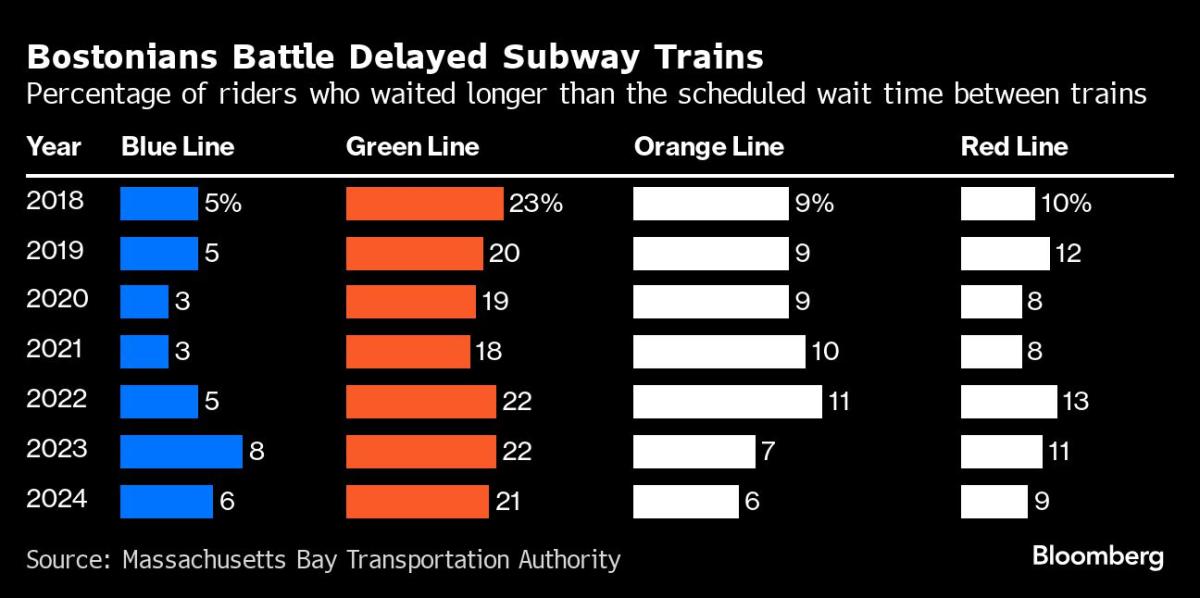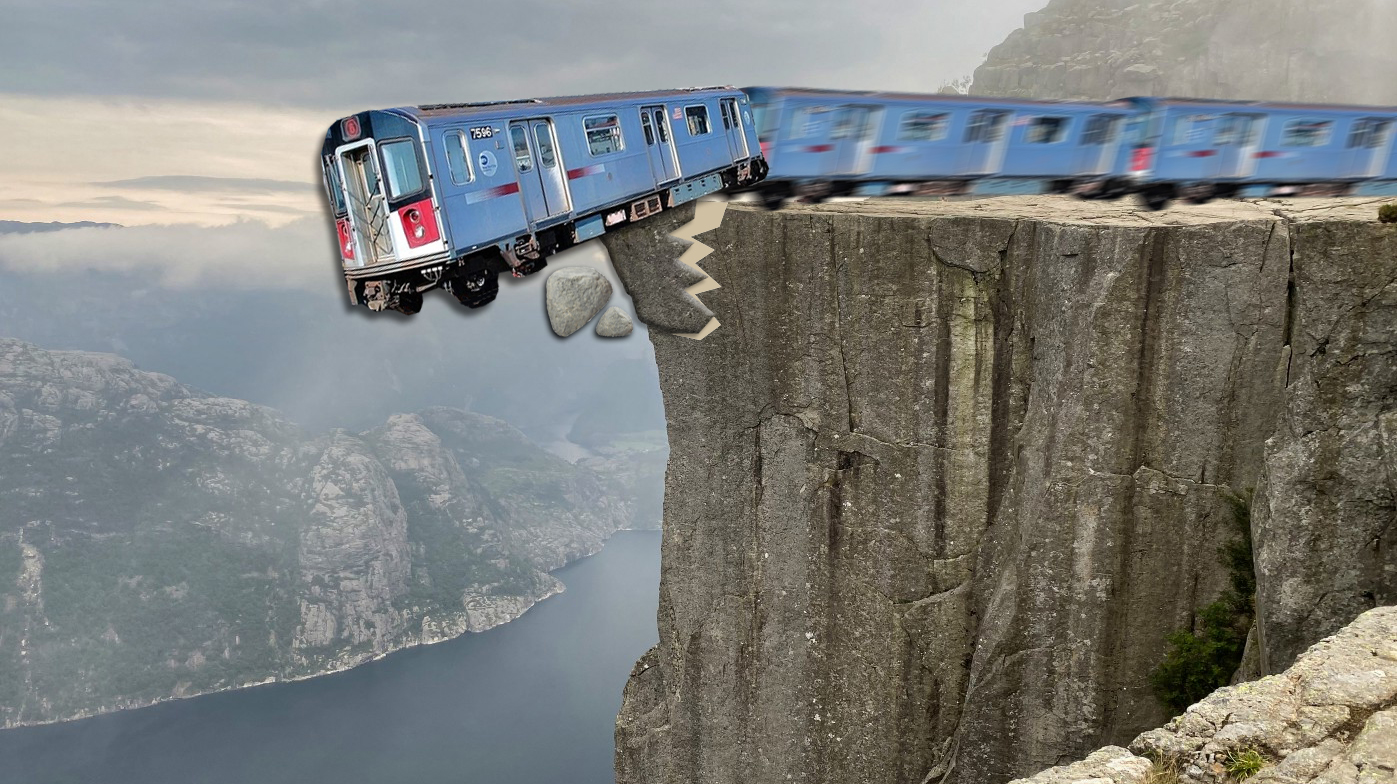OK, let's support business growth in these places. Not easy, but not a "Maoist level of revolutionary change" either.
The
Inner Core contains mostly streetcar suburbs. 1.6 million people, almost a quarter of MA's population.
Right, nobody in Camberville has kids, got it.
Just because I want things to be different doesn't mean I don't understand why they are the way they are. When I visit my old friends back in suburbia I don't preach to them about not driving--it's literally not a choice there, I get it. But
the Inner Core isn't suburbia.
This is literally possible. It'll take relentless advocacy and politicians with courage, but it's possible.
Sorry, what? The average US city is 22% parking by surface area. We could infill like maniacs for decades without needing to touch suburban neighborhoods.
With this disappointing future on one end, and Maoist Urbanist Revolution Utopia on the other, I think there is something in the middle that is actually achievable in the next couple generations.
Nor sure why you're contesting any of my initial or responsive points. My original post was observing the fact that, given the fact that our entire settlement patterns and infrastructure have been built around 100 years of cars, it's a lot more difficult to retrofit that into anything close to smart growth. In most of Boston, Cambridge and Somerville, and some pockets of some of the other inner towns, development largely was complete by the time of the car, so it's a lot easier to just bring back trains on the one hand, and you already have density waiting there on the other.
You seem to be denying, however, the fact that Cambridge and Somerville are out of reach to a huge segment of the population. Replying that "right, nobody in Camberville has kids, got it" exposes a supreme lack of awareness on the very real problem that urbanistic policy, and liberal policy in general, has not translated into affordable and accessible neighborhoods for the many. Yes, of course children exist everywhere. It's impossible for many people to have kids and afford to live there, however, and this is why people with families are fleeing the out of control costs of these towns and cities. I hope you're not actually contesting this?
It is also incorrect to simply share a map that lumps entire towns outside Boston as "streetcar suburbs". Cambridge and Somerville in particular have both density and more importantly, density that was built around rail lines and streetcars to a degree that is not consistent in most of the other outlying towns. Moreover, due to the fact that Cambridge was, and remains, an independent employment base and cultural focal point that is distinct from Boston, it is in fact somewhat unique, as are the Cambridge suburbs which basically means Somerville and parts of Watertown. This has made these areas desirable and fed the continued success they see today. The same is simply not true of the towns south or southwest of Boston; Dedham, Milton, Quincy and Braintree all have pockets of density, but they are far from the urban core and unlike Cambridge or Somerville, there has never been a Harvard Square or diverse employment and cultural center to which its population can look—they were always, and remain, satellites of downtown Boston. In addition, they have large swathes of 1950s style neighborhoods that divide their small streetcar style corridors and commercial centers, not to mention other geographic barriers such as highways, large roads, empty areas, and a lack of co-orientation toward each other. I am well aware of Somerville's progress over the years; I grew up here, and I have watched it. But living in Somerville, one could always be oriented toward Cambridge and not Boston. In Newton, the orientation is either to downtown or Back Bay—there is no "Cambridge equivalent" whereby Newton might be equally pulled toward Wellesley or Needham in the way Somerville is pulled toward Cambridge. It's what makes these cities special, it's why they're great, and it's probably why you live there and not in Newton or Quincy.
I dont deny that there are areas with good bones, but there are just so many limitations to assuming that a Medford or an Everett could easily become a Somerville without both massive infrastructure investment in tunnels, as well as vastly increased density. And this is the urban core. We live in an era where the government does not invest in regional improvements on anywhere near the level it once did, and simultaneously, there are no longer corporations that perform this function the way railroad companies did in the 19th century. Consequently, investment is highly selective and the benefits often are completely outweighed by the massive gentrification that accompanies them. Therefore, the areas with good infrastructure and density, as well as—crucially—culture, are concentrated in areas that most people cant afford.
When I say a "Maoist style revolutionary change", I mean it. The degree to which the government and our society needs to change to reverse this problem is so immense it boggles the mind. You can point to the streetcar taxpayers that line Milton Square or Dedham Center all you want, but the problem is economic and the numbers are staggering. We see the politicians taking press photos every time some dense development in East Cambridge or Roslindale has a ribbon cutting, but each one of these is just an infinitesimal drop in the bucket for what we need. Housing costs in Massachusetts, especially the Boston region, have risen astronomically for decades. Even to stop the bleeding ands stabilize this rate of increase would require tens, probably hundreds of thousands of new housing units, but we dont need to stabilize the unaffordable housing costs: we need to
lower them. I have yet to even see an analysis that really appreciates this; the 300,000 new units number that gets thrown around—assuming we built this in ten years—would assuredly not come close to a genuine change in the housing cost in the Greater Boston area.
And when you get the to the degree of resistance from every local town, and the fact that any building that is just slightly more dense than its environs, and still takes years of fighting and lawsuits and ZBA meetings, it's hard to imagine anything changing without something truly revolutionary in the state government that completely reorganizes the way political power is held and wielded across the state. Little micro-policies that sound great coming out of the Cambridge and Boston City Councils are never going to be able to effect anything close the changes we need. The problem is that we 1) lack any regional authority for planning what's best for the common good, and 2) we have a federal system that introduces a never-ending competition between states to race to the bottom when it comes to all the stuff that harms everyone, yet benefits both corporations and poor planning, and encourages lower taxes and disinvestment. Look where all the people from MA and NY go, they go to Texas and Florida, and other states that are cheap but have even worse planning and care of the people than we do here. There is only one way to reverse that, and that is with a reorganization of the
national government, to coordinate spending in a fair way and to prevent what we have now, which is corporate threats to up and leave an "anti-business" state every time a state government proposes doing something that actually makes sense but alas, actually means it has to be paid for. This gets to the way the Constitution organizes authority across the states, and that ain't changing anytime soon. Look at Wu, they're all threatening to leave and scaring up the Chamber of Commerce folks. With policy that was nationally set, rather than setting every municipality and state against each other, this would not be an issue.
So yes, to truly make the changes that are needed, I dont see it as being possible with the way our government is organized, and even if those changes were made, we still have to contend with settlement patterns built around a car-centric way of living. The ideal would be if we'd known this 100 years ago and not built the suburbs at all. Probably a utilitarian solution would be to bulldoze most of them and herd people into the cities. I believe that is essentially what happened in China in the 1960s. Of course that sounds horrible because it threatens individual autonomy, the very principle held as sacrosanct in the West—and especially America—that is also the core "value" that prevents any sensible or rational policy that benefits the community over the individual.
I'm certainly not saying that advocating for change isn't worth it; it's always worth it. But I think people delude themselves on how much actual change is needed. A new rapid transit line every 40 years is not going to come close. If we built 20 new lines in the next ten years, changed the state constitution to enact full state planning for all zoning and rezoned the entire urban core for six stories minimum with a full blockade of any neighborhood ability to fight any development in court, that might start to solve the problem. Is something better than nothing? Of course. But the fact that Cambridge has very few families who can afford to live there, and the fact that all the neighborhoods with good transit are also extremely wealthy and elite, should be heeded a lot more than it is. To be clear, I absolutely do not think there's anything elitist about density or rapid transit, but that's how it's played out, and that is also something to contend with when it comes to changing hearts and minds.





